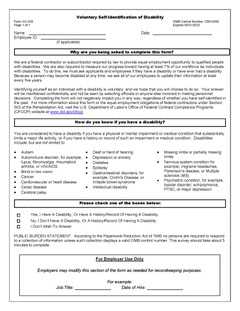JUNE 2020, Volume 17, Issue 6
Overview
- Can Employees Refuse a Recall to Work and Still Collect Unemployment?
- EEO-1 Data Will Not be Collected in 2020 Due to Coronavirus
- New COBRA Model Notices and Extended Deadlines
- New EEOC Guidance Allows for Mandatory Diagnostic Testing
- PPE Kits for Small Businesses
Can Employees Refuse a Recall to Work and Still Collect Unemployment?
In most cases, no, but ultimately it will be up to the state to decide on a case-by-case basis. Keep in mind that some places where people live may still have the stay order in place although where they work may have had it lifted and that can pose a challenge for employers. Many individuals are making more money staying at home because of the additional $600 from the CARES act that people are receiving in addition to their regular unemployment benefit, so why go back to work and take the risks, when it’s financially beneficial to stay at home and collect unemployment.
Keep in mind that when an employer recalls an employee to work, it must notify its state unemployment agency of the offer of work that was made to that individual. The link for the form that can easily be completed by a Delaware employer is: https://ui.delawareworks.com/forms/work-refusal/. This should stop the eligibility for benefits based on work not being available. If you believe an employee might refuse a recall for unlawful reasons, you might want to educate the employee on the consequences of unemployment fraud. These could include not only reimbursing the state for benefits paid but also civil and criminal penalties, including incarceration.
- - - - -
EEO-1 Data Will Not be Collected in 2020 Due to Coronavirus
The Equal Employment Opportunity Commission (EEOC) announced on May 7, 2020 that it will delay until March 2021 the collection of EEO-1 Component 1 information.The EEO-1 reporting form asks for the number of employees who work for a covered business sorted by job category, race, ethnicity and gender.
"The EEOC recognizes the impact that the current public health emergency is having on workplaces across America and the challenges that both employers and employees alike are now facing," the agency said in a statement. "Delaying the collections until 2021 will ensure that EEO filers are better positioned to provide accurate, valid and reliable data in a timely manner."
- - - - -
New Voluntary Self-identification Form
The Office of Federal Contract Compliance Programs announced the release of a new and "streamlined" Voluntary Self-Identification of Disability form. The regulations implementing Section 503 of the Rehabilitation Act require federal contractors to invite applicants and new hires to self-identify as having a disability. Contractors must also invite employees to self-identify as disabled at least once every five years. These invitations must be made using the form approved by the Office of Management and Budget and can be found on www.dol.gov/agencies/ofccp/self-id-forms. Please replace the old form with the new form for future new hires.
The disclosure of disability status is voluntary; applicants and employees may identify as having a disability, or they may choose not to respond at all. However, contractors use the responses to determine whether the workforce achieves the seven percent representation goal for individuals with a disability on an annual basis.
- - - - -
New COBRA Model Notices and Extended Deadlines
In early May, the Department of Labor (DOL) issued two new model COBRA notices – the initial (also called general) notice and the election notice. At the same time, the DOL working with the Department of the Treasury (the Departments) extended certain COBRA deadlines in response to COVID-19.
The revised model notices provide additional information to address COBRA’s interaction with Medicare. The model notices explain that there may be advantages to enrolling in Medicare before, or instead of, electing COBRA. It also highlights that if an individual is eligible for both COBRA and Medicare, electing COBRA coverage may impact enrollment into Medicare as well as certain out-of-pocket costs.
These new model documents are available at www.dol.gov/agencies/ebsa/laws-and-regulations/laws/cobra. They will provide important information to COBRA-eligible individuals as they make healthcare choices for themselves and their families while assisting employers that must comply with the notice requirements under COBRA.
Employer Action Steps
In the current environment with significantly more individuals experiencing COBRA qualifying events, such as a reduction in hours or termination of employment, employers sponsoring group health plans may want to quickly review and modify their COBRA materials and procedures. In addition, because the outbreak period has a retroactive application to March 1, 2020, some actions taken after March 1 and before this new guidance was released may need to be modified. Actions items for employers include:
- Review the new model COBRA notices and determine if you want to use the new model notices. If you have a third-party administrator for COBRA, discuss the new model notices.
- If you have your own COBRA notices and want to continue to use those, consider adding the new Medicare and COBRA language to your notices.
- Create a cover letter or memo describing the extended deadlines to go with initial and election notices. See sample language above
- Send a communication to qualified beneficiaries currently on COBRA to advise them of the extended deadlines for payment of COBRA premiums.
- Review any notice of a qualifying event that you received from a participant or qualifying beneficiary that was rejected as being untimely since March 1, 2020. If the notification will be timely based on the extended deadlines, send election notices to qualified beneficiaries.
- Review any COBRA elections already made that were denied as being untimely since March 1, 2020. If the election would be timely based on the extension, notify the qualified beneficiary that his or her COBRA election is timely.
- Review if COBRA coverage was denied or terminated because premiums were not paid on a timely basis since March 1, 2020. If premium payments would be timely based on the extended deadlines, notify the qualified beneficiaries of the new time frames from making payments.
- Confirm that your insurer (or stop loss insurer) will agree to use these extended deadlines.
- For non-federal governmental employers, determine if you will be using these extended deadlines and confirm that your insurer or stop loss insurer is in agreement.
- - - - -
New EEOC Guidance Allows for Mandatory Diagnostic Testing
The new guidance allows an employer to administer a COVID-19 test (a test to detect the presence of the COVID-19 virus) before permitting employees to enter the workplace.
The Americans with Disabilities Act (ADA) requires that any mandatory medical test of employees be "job related and consistent with business necessity." Applying this standard to the current circumstances of the COVID-19 pandemic, employers may take steps to determine if employees entering the workplace have COVID-19 because an individual with the virus will pose a direct threat to the health of others. Therefore, an employer may choose to administer COVID-19 testing to employees before they enter the workplace to determine if they have the virus.
Consistent with the ADA standard, employers should ensure that the tests are accurate and reliable. For example, employers may review guidance from the U.S. Food and Drug Administration about what may or may not be considered safe and accurate testing, as well as guidance from CDC or other public health authorities, and check for updates. Employers may wish to consider the incidence of false-positives or false-negatives associated with a particular test. Finally, note that accurate testing only reveals if the virus is currently present; a negative test does not mean the employee will not acquire the virus later.
Based on guidance from medical and public health authorities, employers should still require - to the greatest extent possible - that employees observe infection control practices (such as social distancing, regular hand-washing, and other measures) in the workplace to prevent transmission of COVID-19.
- - - - -
PPE Kits for Small Businesses
To assist small businesses, the State of Delaware will make available PPE Kits consisting of hand sanitizer, washable face coverings and surface cleaners.These will be available through Members of the General Assembly, 20 Main Street Organizations, 13 Chambers of Commerce in DE, State Office of Supplier Diversity and Division of Small Business.
- - - - -
Contact HR Strategies staff at 302.376.8595 or info@hrstrategies.org if you would like support or would like to learn more about the items in this newsletter. Please contact us if you would like to be added to our Monthly Strategies mailing list or if you would like for us to add someone else to our mailing list.



